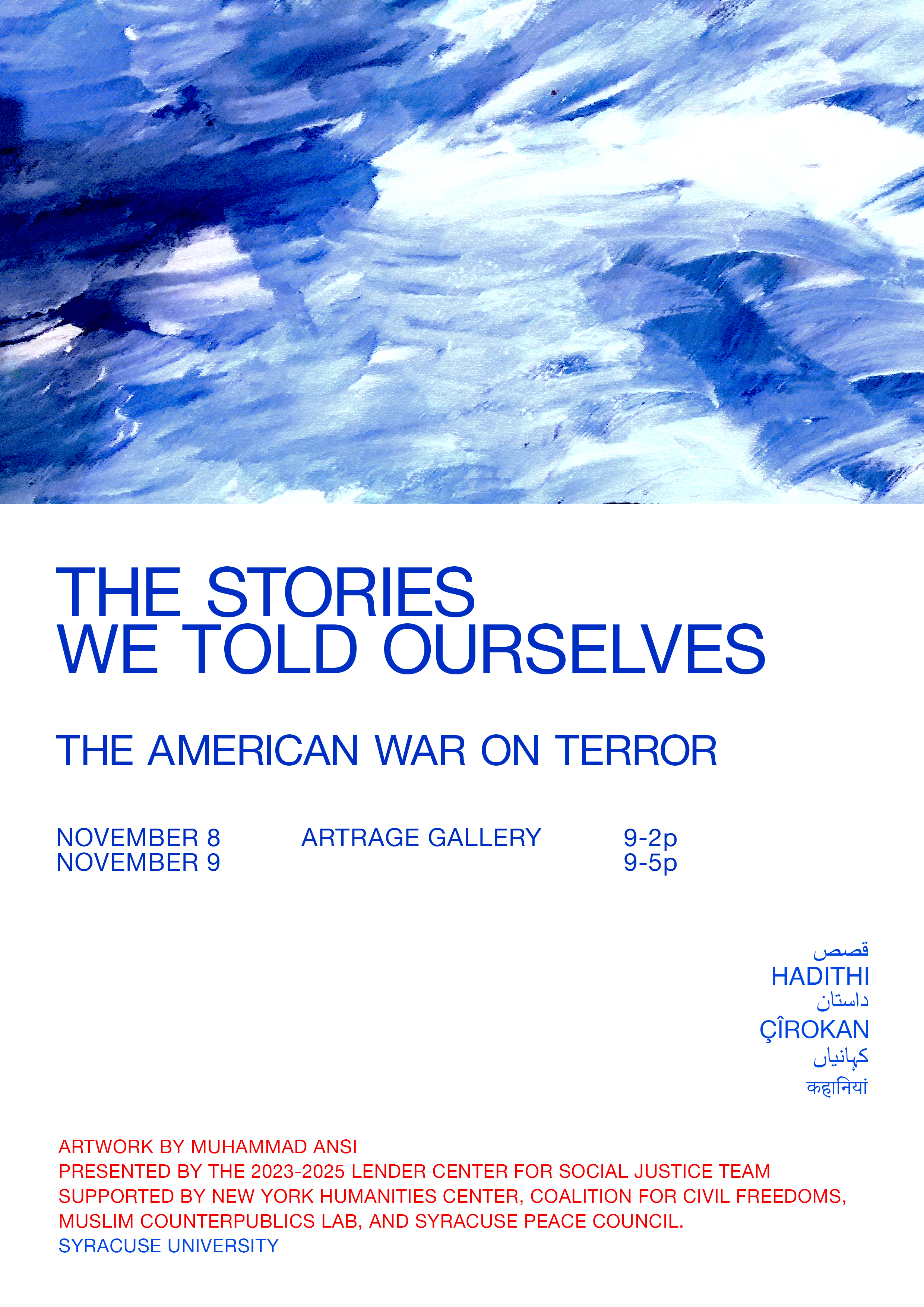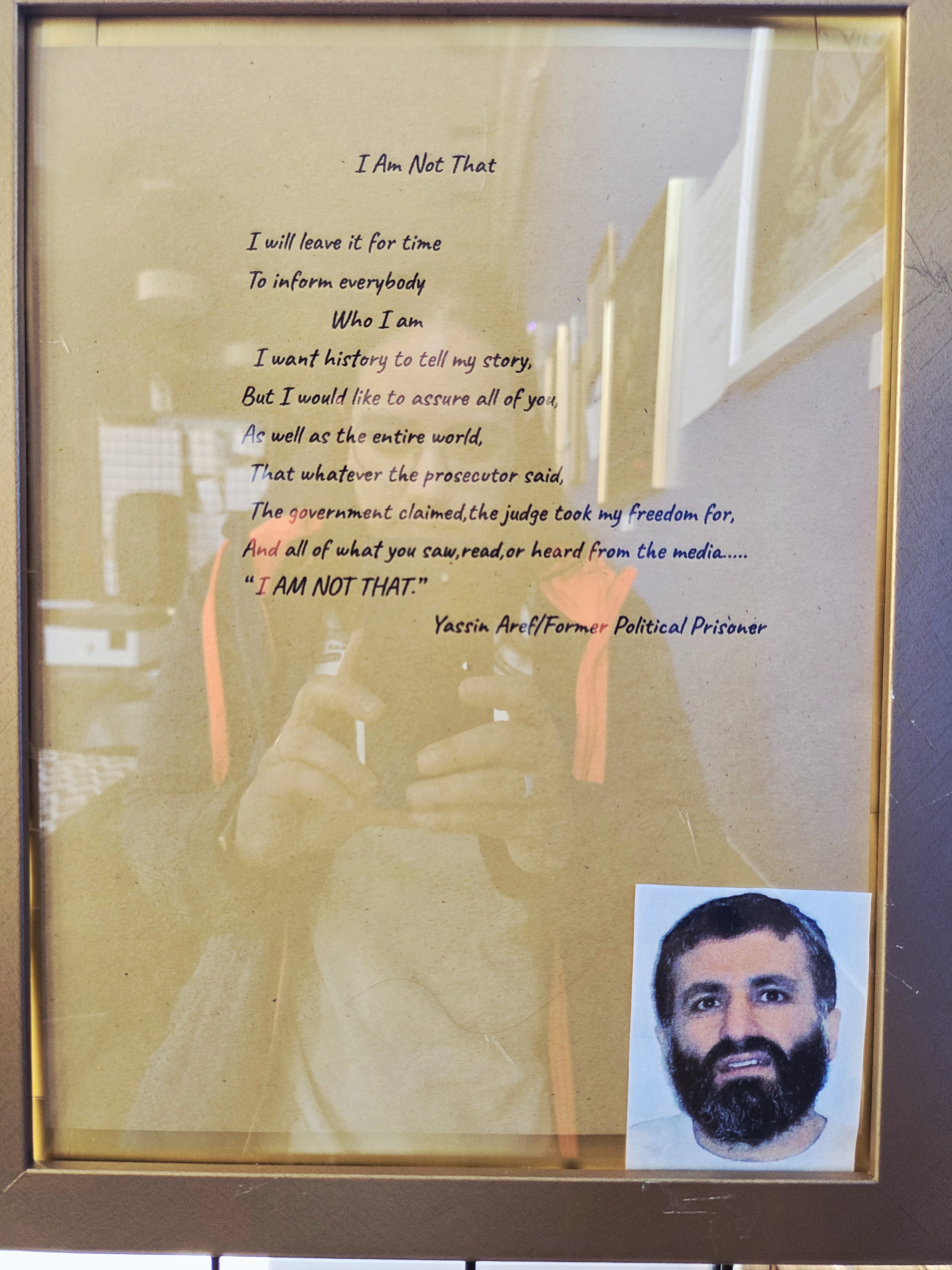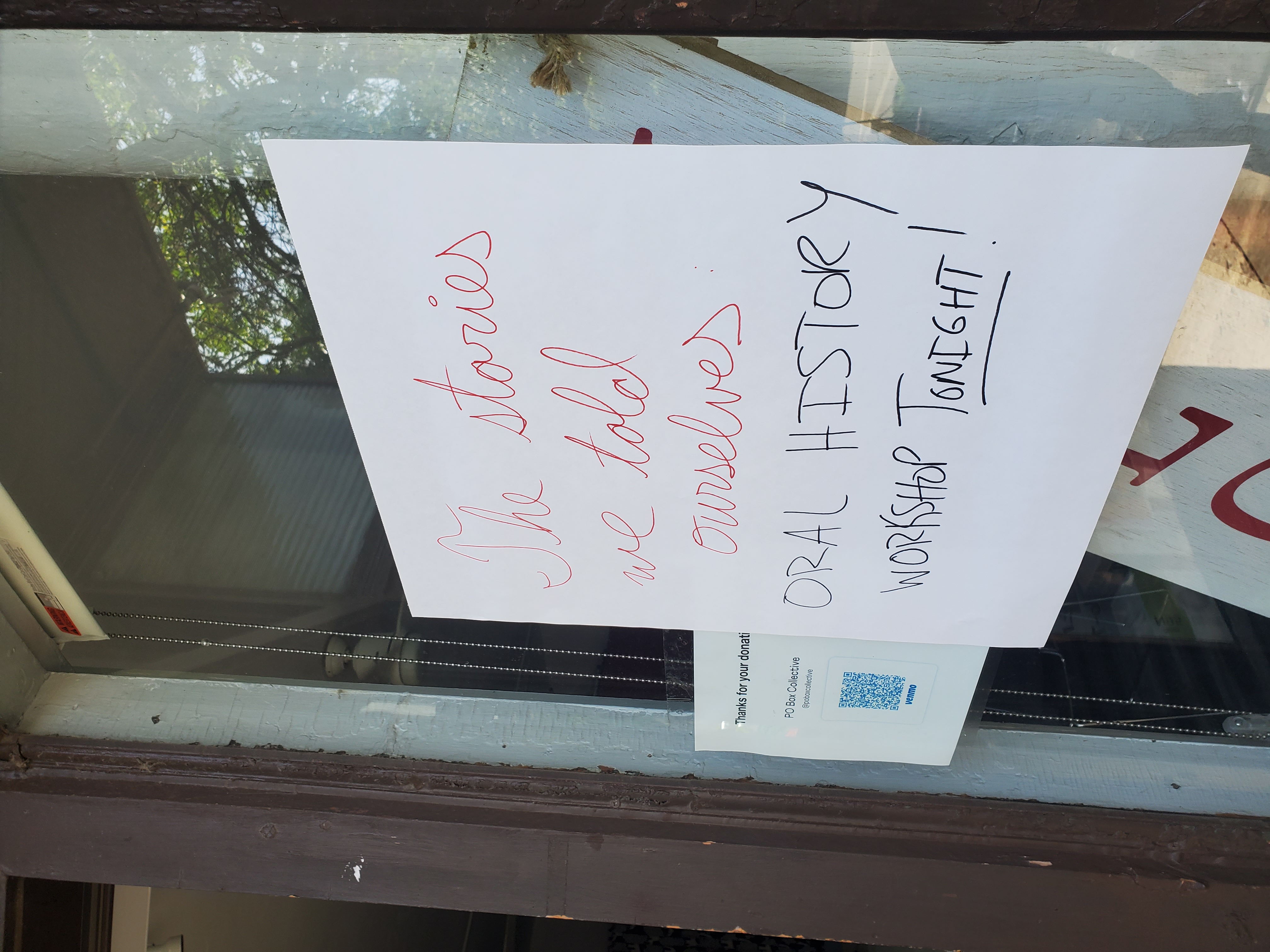Our team at Syracuse University is researching the relationship between American news media and law enforcement during the "War On Terror." Our project consists of three parts: academic research on the news coverage of two Muslim men who were targeted in the early post-9/11 era; community-focused oral history workshops in Chicago, Washington, D.C., and New York City; and a counterstories collection initiative, to be displayed in Syracuse this fall.
This work is supported by the Lender Center For Social Justice, and is led by Professor Nausheen Husain at Syracuse University. Our team consists of Mohammad Ebad Athar, Olivia Boyer, Azadeh Ghanizadeh, Mary Hanrahan, and Tia Poquette.
Our exhibit will be on display Nov. 8 and 9 at ArtRage in Syracuse, NY. More information below.

For two years, our team, based at Syracuse University, has been analyzing agenda-setting media coverage of those targeted by the American 'War On Terror,' particularly Black, Arab, South Asian, and Muslim men who have come under scrutiny by American law enforcement. We've found that, despite objectivity being an oft-stated goal of our news systems, these men and their communities are often subject to reporting practices that end up vilifying them.
Though the current iteration of this work has been in progress for almost two years, the thought processes behind it have been developing for more than a decade. Built atop Jesse J. Norris' idea of "conviction capitalism," as well as Mahmood Mamdani's "good Muslim/bad Muslim" concept, our work is primarily an analysis of how elite news media have portrayed three specific Muslim men: Yassin Aref, Salman Hamdani and Adel Daoud. While Aref and Daoud were targets of law enforcement stings and were eventually incarcerated, Hamdani was a young man who rushed to the site of the World Trade Center to help, and was treated by law enforcement and mainstream media with suspicion. Aref and Daoud both ended up incarcerated and Aref was eventually deported; Hamdani ended up dead.
Our team is primarily interested in how local and national American agenda-setting media treated each of these people: how were they described in stories about them? Who was quoted in those stories? Which details about the cases were mentioned and which were omitted?

Oral history is a useful and thoughtful way for communities to be able to have their stories on the record. In collaboration with Muslim Counterpublics Lab, our team has run oral history workshops, led primarily by Mohammad Ebad Athar and Dr. Maha Hilal, in Chicago, Washington, D.C., and New York City (upcoming in August 2025). Oral history is less about confirming facts and dates and more about centering someone’s perspective of an event. As an alternative to understanding the "War On Terror" through agenda-setting news media, it has the ability to highlight counterstories.
Our final oral history workshop in New York City will be offered, along with a walking tour by New York Narratives, in August, free of charge. Sign up here! Spots are limited.
We are conducting our own oral history interviews with journalists who covered or continue to cover the ongoing and expanding "War On Terror." Are you interested in being interviewed? Email the project lead at nhusain@syr.edu.

Our team is organizing an exhibit related to this work to displayed at ArtRage in Syracuse, New York on Nov. 8 and 9. This will be a culmination of our current work, though it will continue in different ways, and will display aspects of all three prongs of our project. The exhibit wil display findings from our academic research, art pieces by incarcerated members of our communities, generously displayed by the Coalition For Civil Freedoms, as well as selected art, poetry, prose, and memories sent in by community members. Our work will be summarized in a zine that will be available to download or take home from the exhibit.
Do you want to collaborate with us in some way? Email the project lead at nhusain@syr.edu.